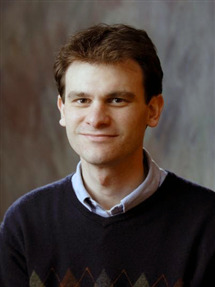February 14, 2020 – 11:15 AM
TSRB auditorium

Cedric Langbort
University of Illinois at Urbana Champaign
Abstract
We consider situations in which better informed agents must decide which message to transmit to a decision-making receiver, so as to influence the decision in their favor.
Such scenarios, some versions of which have been considered earlier in Economics under the umbrellas of ‘cheap talk’ and ‘persuasion theory’ have found renewed relevance in a number of cyber-socio-physical contexts, and have interesting connections to both information and game theory.
Starting with the simplest single transmitter-single receiver setup, we present several variants of such strategic information transmission of increasing complexity, in terms of (1) strategic refinement and rationality of the players, (2) information asymmetries and (3) sender network structure, as well as applications.
The nature of equilibrium sending strategies, as well as the sender’s ability to reach an appropriate decision despite deception vary widely depending on these assumptions, thus illustrating the subtlety of these deception games.
Biography
Cedric Langbort is an Associate Professor of Aerospace Engineering at the University of Illinois at Urbana–Champaign (UIUC), where he is also affiliated with the Decision & Control Group at the Coordinated Science Lab (CSL), and the Information Trust Institute. Prior to joining UIUC in 2006, he studied at the Ecole Nationale Superieure de l’Aeronautique et de l’Espace-Supaero in Toulouse (France), the Institut Non-Lineaire in Nice (France), and Cornell University, from which he received the Ph.D. in Theoretical & Applied Mechanics in January 2005. He also spent a year and a half as a postdoctoral scholar in the Center for the Mathematics of Information at Caltech. He works on applications of control, game, and optimization theory to a variety of fields; most recently to “smart infrastructures†problems within the Center for People & Infrastructures which he co-founded and co-directs at CSL. He is a recipient of the NSF CAREER Award, the advisor of an IEEE CDC Best Student Paper Award recipient, and has been an associate editor for OCAM, the journal of Optimal Control Application and Methods, as well as for Systems & Control Letters.